2023 Tesla Model 3 vs. 2023 Tesla Model Y: How They Compare

In the market for a Tesla? Not sure if you want a crossover or a sedan? Well, dear readers, this comparison is for you. If you’re waffling between the smaller Model 3 and the Model Y, we’ve got the official figures to help you determine which model best suits your needs.
While the two models are quite similar—even more so when aesthetics are brought into play—there are still some notable differences between the 3 and the Y. Let’s take a look at how they line up, and how they stand apart.
Dimensions and Capacities
It probably won’t shatter your concept of reality to know that the Model Y SUV is slightly larger than the Model 3 it resembles, but the two aren’t really that divorced from each other.
The Model Y’s 187.0-inch length is only a couple inches ahead of the Model 3’s 184.8-inch figure. They’re even closer on the wheelbase front, with the Model Y’s 113.8-inch span ahead of the Model 3 by just 0.6 inch. The Model Y is also 1.6 inches wider, and it offers an extra 1.3 inches of ground clearance.
Interior dimensions again favor the Model Y, but not across the board. The Model Y bests the Model 3 in front and rear headroom, although the former are within an inch of each other. Interestingly, the Model 3 actually offers 0.9-inch more front legroom than the Model Y, and the sedan’s rear hip room is also 1.8 inches more capacious. The Model Y remains the rear-legroom champ, offering 40.5 inches of space to stretch versus the Model 3’s 35.2 inches.
Tesla
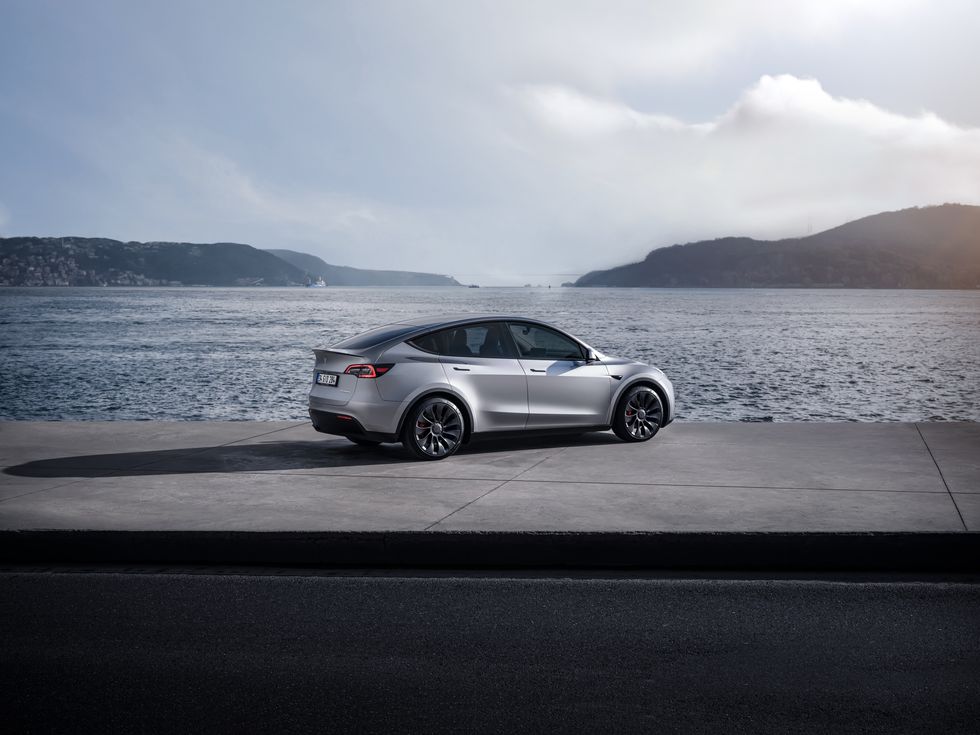
Tesla
The gulf widens when comparing cargo space. The Model 3 offers 22.9 cubic feet of cargo capacity with five people in the car, a fair bit behind the Model Y’s 34.3-cubic-foot volume. However, once you cram seven people inside the Model Y, that figure drops to just 17 cubic feet. That said, you can’t fit seven adults in a Model 3 at all.
Horsepower
This part is a bit tricky. Tesla doesn’t publish any public-facing horsepower or torque figures, only performance metrics. However, there are some horsepower numbers hidden away in the automaker’s documents filed with the EPA.
According to those documents, the Model 3 RWD offers up 257 horsepower from its single rear motor. The Model 3 Long Range’s two motors combine for a net 393 horsepower, while the Model 3 Performance offers 430 horsepower. Over on the Model Y side, both the base and Long Range variants produce 390 horsepower, with the Performance variant rising to just 418 horsepower.
Acceleration and Top Speed
As of this writing (Tesla loves a lineup shuffle), the Model 3 is offered in three trims: The base model comes with rear-wheel drive, while the Long Range and Performance variants add a second motor and all-wheel drive. The Model 3 RWD takes 5.8 seconds to reach 60 mph and continues on to a top speed of 140 mph. The Model 3 Long Range drops the 60-mph time to 4.2 seconds and boosts top speed to 145 mph. At the top of the pile, the Model 3 Performance rips to 60 in 3.1 seconds and tops out at 162 mph.
Over on the Model Y side, all three variants (base, Long Range, Performance) come with standard dual-motor AWD. Both the base and Long Range variants have top speeds of 135 mph, but the base’s 5.0-second 60-mph time is only two-tenths slower than the Long Range. The Performance trim turns up the wick, dropping the zero-to-60 time to 3.5 seconds and increasing top speed to 155 mph.
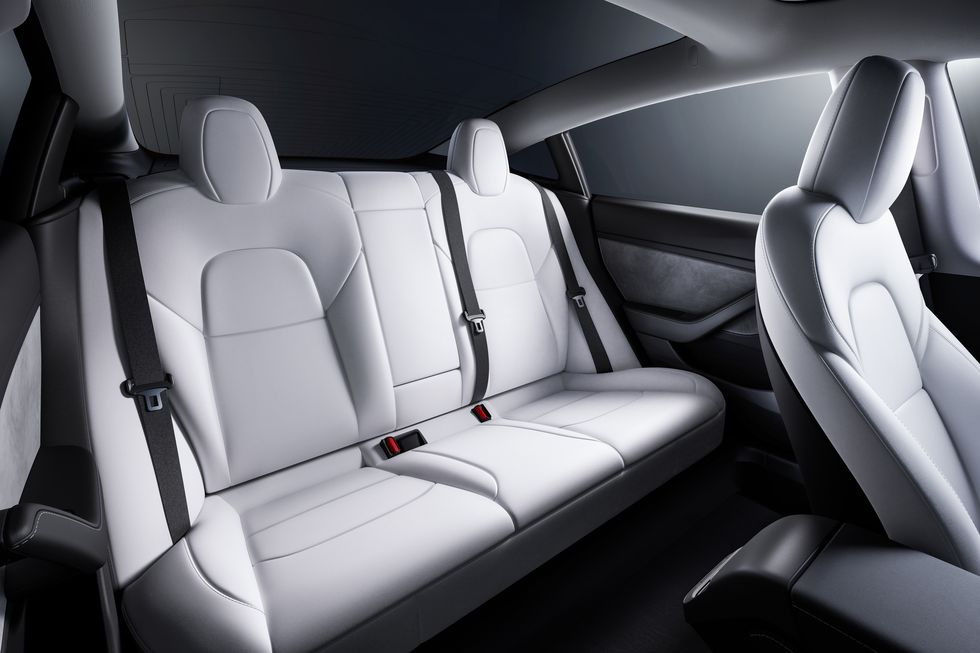
Tesla
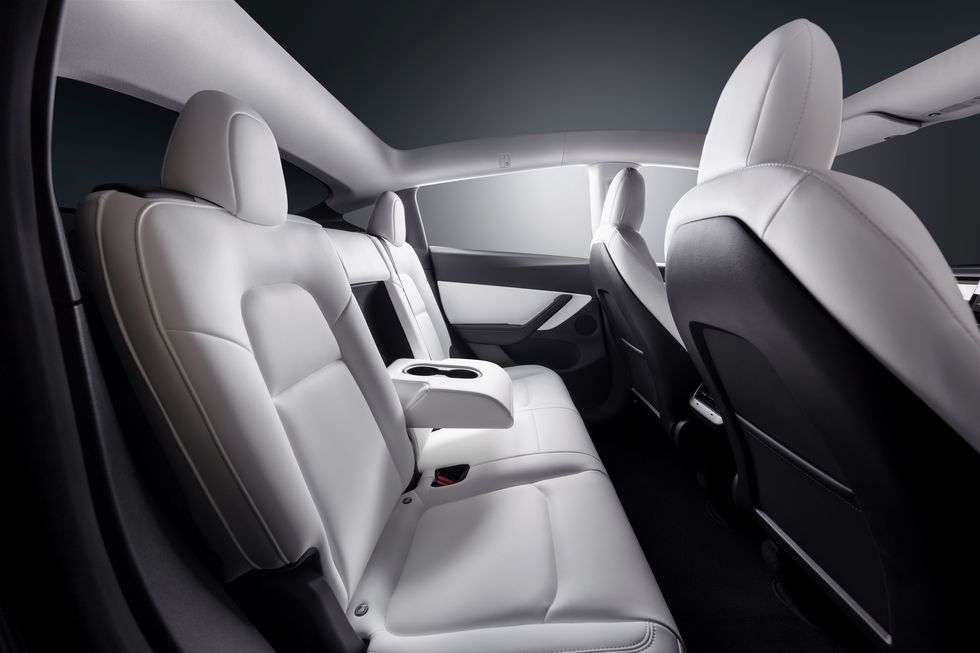
Tesla
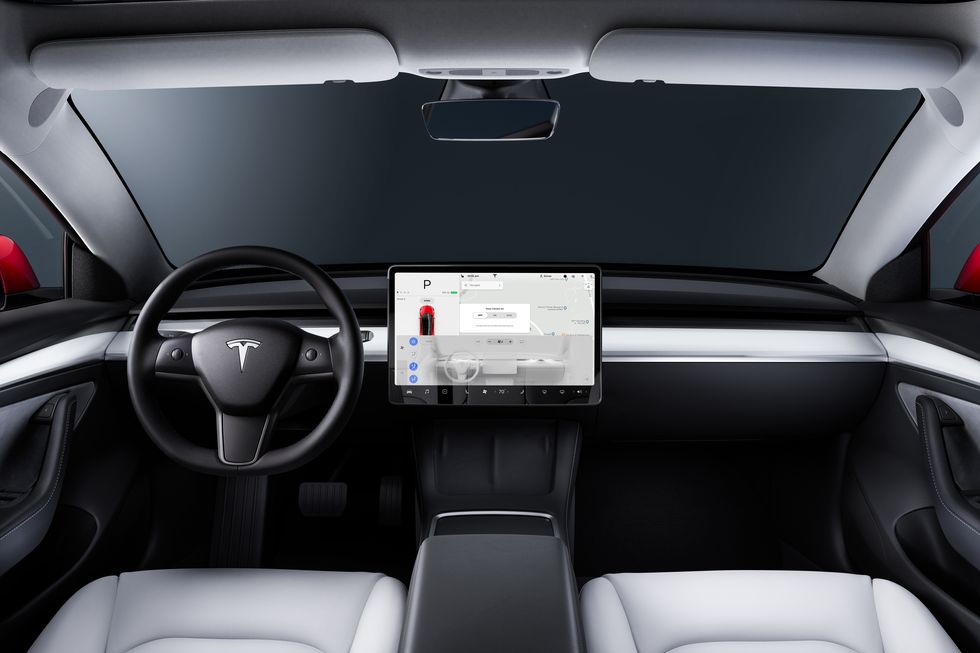
Tesla
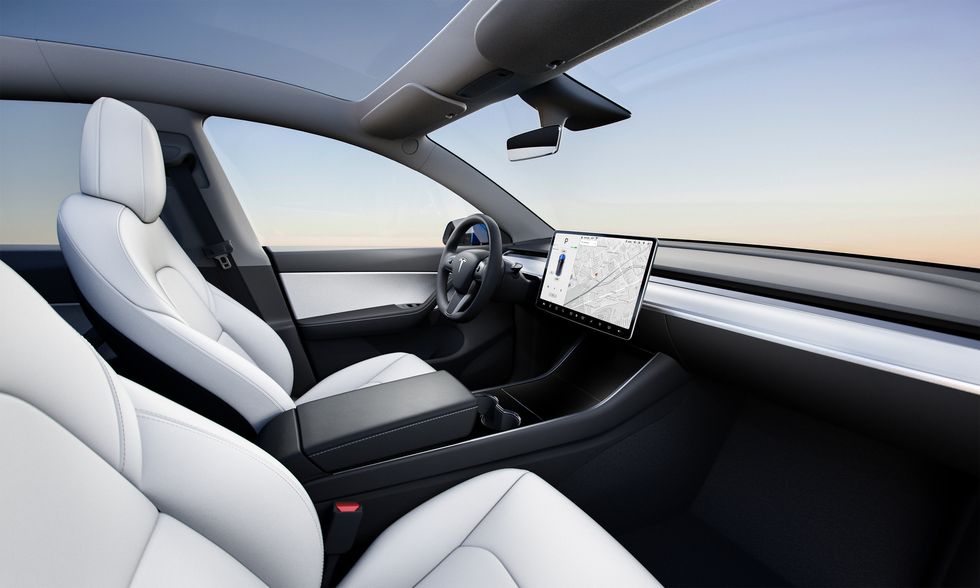
Tesla
Range
The Model 3 RWD offers the least range of any variant mentioned in this comparison at an EPA-estimated 272 miles. Moving up to the Model 3 Long Range increases that figure to an impressive 333 miles—the best of this lot—although boosting output on the Performance model incurs a range penalty, settling at a still-good 315 miles.
The Model Y’s base AWD variant offers a solid 279 miles of range, while the Long Range trim rises to 330 miles. Again, opting for the Performance version will eat into range, but at 303 miles, it’s still pretty darn good.
Price*
Don’t take these price figures with a grain of salt; take them with the whole silo’s worth. Tesla changes its prices like most teenagers change their minds, so it’s worth triple-checking the website or your local store to ensure nothing has changed since this writing.
The Model 3 is a fair bit cheaper than the Model Y on the low end. The base Model 3 RWD comes in at $41,630, several thousand dollars lower than the base Model Y’s $49,130 window sticker. The Model 3 Long Range comes in at $48,630, while the Model Y Long Range asks $51,880. At the top of the pile are the Performance variants; the Model 3 will set you back $54,630, and the Model Y isn’t far from that figure at $55,880.

Senior Editor
Cars are Andrew Krok’s jam, along with boysenberry. After graduating with a degree in English from the University of Illinois at Urbana-Champaign in 2009, Andrew cut his teeth writing freelance magazine features, and now he has a decade of full-time review experience under his belt. A Chicagoan by birth, he has been a Detroit resident since 2015. Maybe one day he’ll do something about that half-finished engineering degree.





